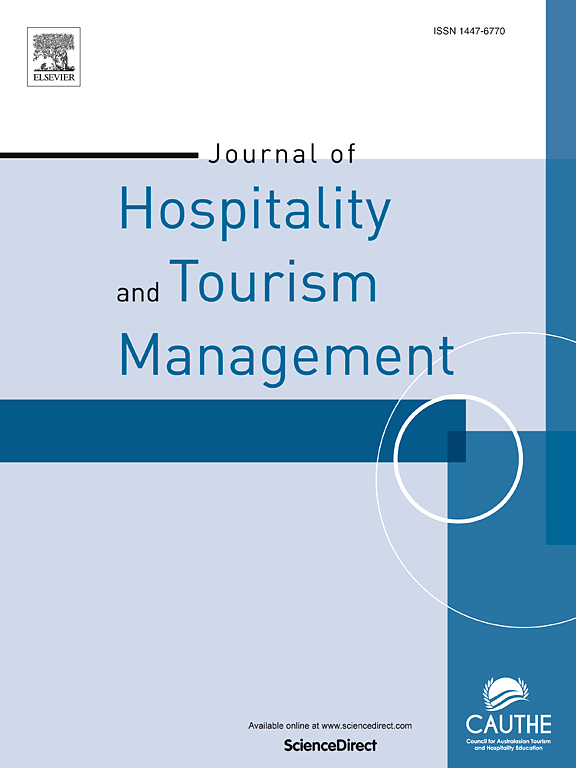From holocene to anthropocene: A spacetime perspective on the ontology, epistemology, and methodology of space tourism
IF 7.8
1区 管理学
Q1 HOSPITALITY, LEISURE, SPORT & TOURISM
引用次数: 0
Abstract
The rise and progression of space tourism has transformed the tourism paradigm. This study aims to systematically compare the fundamental differences between space tourism and terrestrial tourism in terms of ontology, epistemology, and methodology, to clarify the theoretical boundaries of space tourism and identify future research directions. A mixed-method approach was employed, integrating the systematic review technique with the focus group and the Delphi method to develop a cohesive conceptual framework. Two systematic reviews synthesized evidence from the literature on space tourism compared to terrestrial tourism, utilizing the Web of Science and Scopus databases. The Focus group and Delphi method were used to iteratively consult interdisciplinary experts to reach a consensus on the ontological, epistemological, and methodological distinctions between space and terrestrial tourism. Ultimately, this study developed a nine-dimensional integrated conceptual typology for space and terrestrial tourism studies. The typology framework combines essential philosophical elements, including ontology, epistemology, and methodology, with theoretical dimensions encompassing the current, incremental, and innovative components of the two types of tourism, into a unified analytical matrix. This study addresses the philosophical comparative research gap between space and terrestrial tourism through theoretical deconstruction, multiple methods, and proposition construction. It advances the evolution of the spacetime paradigm of tourism science, providing theoretical foundations and practical guidance for academia to navigate tourism reform in the new space era.
从全新世到人类世:空间旅游本体论、认识论与方法论的时空视角
太空旅游的兴起和发展改变了旅游模式。本研究旨在系统比较空间旅游与地面旅游在本体论、认识论和方法论上的根本差异,厘清空间旅游的理论边界,确定未来的研究方向。采用混合方法,将系统回顾技术与焦点小组和德尔菲法相结合,形成一个有凝聚力的概念框架。利用Web of Science和Scopus数据库,两篇系统综述综合了空间旅游与地面旅游的文献证据。采用焦点小组法和德尔菲法,反复咨询跨学科专家,就空间旅游和地面旅游的本体论、认识论和方法论区别达成共识。最后,本研究为空间和陆地旅游研究发展了一个九维的综合概念类型学。类型学框架将基本的哲学元素,包括本体论、认识论和方法论,以及包含两种类型旅游的当前、增量和创新成分的理论维度,结合成一个统一的分析矩阵。本研究透过理论解构、多元方法与命题建构等方法,弥补空间与地面旅游的哲学比较研究落差。它推动了旅游科学时空范式的演变,为新空间时代旅游改革提供了理论基础和实践指导。
本文章由计算机程序翻译,如有差异,请以英文原文为准。
求助全文
约1分钟内获得全文
求助全文
来源期刊
CiteScore
13.30
自引率
8.40%
发文量
177
审稿时长
45 days
期刊介绍:
Journal Name: Journal of Hospitality and Tourism Management
Affiliation: Official journal of CAUTHE (Council for Australasian Tourism and Hospitality Education Inc.)
Scope:
Broad range of topics including:
Tourism and travel management
Leisure and recreation studies
Emerging field of event management
Content:
Contains both theoretical and applied research papers
Encourages submission of results of collaborative research between academia and industry.

 求助内容:
求助内容: 应助结果提醒方式:
应助结果提醒方式:


